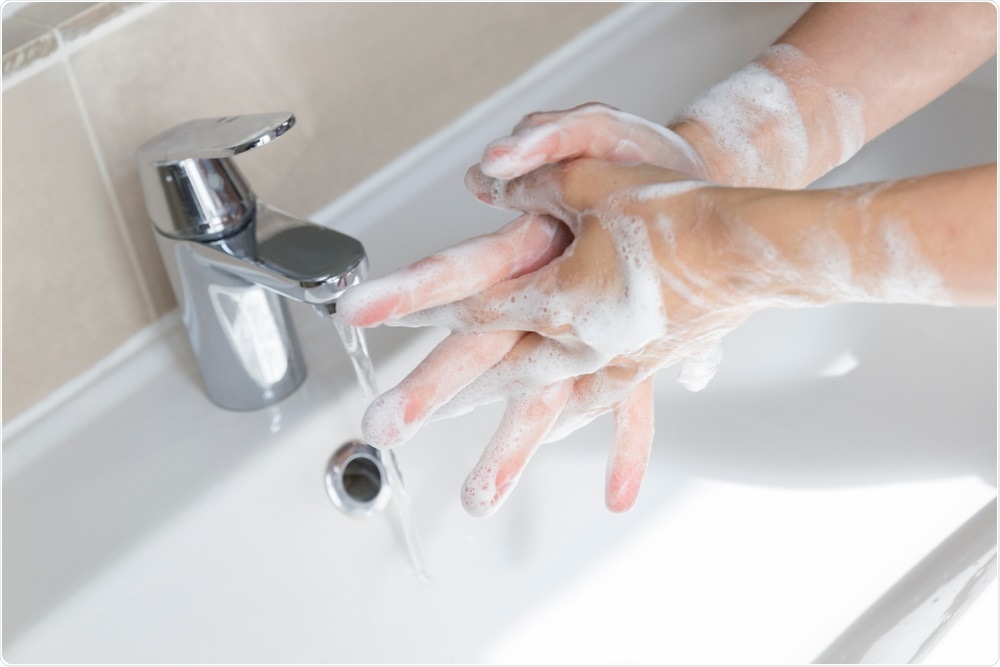Obsessive-compulsive disorder (OCD) is a mental health condition wherein people are caught in a cycle of obsessions, which are unwanted and intrusive thoughts triggering distress, and compulsions, which are coping mechanisms to reduce distress. The rubber hand illusion therapy, whereby fake rubber hands are contaminated with feces, maybe the key in helping people overcome their fears of touching contaminated surfaces, a new study suggests.

Image Credit: ImagePointFr/Shutterstock.com
For many OCD-stricken people, the condition can be extremely debilitating, taking a toll on their lives. At present, treatments and therapies are not always straightforward. The current recommended treatment includes a combination of medication such as Prozac and a form of cognitive-behavioral therapy or talking therapy, which are collectively dubbed as exposure and response prevention.
Exposure therapy can be stressful for OCD patients. This involves letting them touch contaminated surfaces such as the toilet and preventing them from washing their hands. People with OCD can develop extreme fears, even from simple things such as touching a doorknob or being exposed to a dirty environment.
Developing a new therapy
To overcome the problem and in the hope to help OCD patients, an international team of researchers formulated a new therapy, known as multisensory stimulation therapy whereby instead of letting patients contaminate their own hands, they will use a fake hand instead.
The therapy was based on a famous trick called the rubber hand illusion, wherein a person puts both hands on a table, either side of a division such that they can’t see their right hand. To the left of the partition, they see a fake right hand. The illusionist will stroke both the fake hand and the hidden right hand using a paintbrush. After stroking for several minutes, the person will report feeling as if the fake hand is their own.
In the study, published in the Frontiers in Human Neuroscience, the researchers used a fake hand and let the patient watch this being stroked until they developed a sensation it was their own. Then, the rubber hand was smeared with feces, whilst the real hand was dabbed with a damp tissue to copy the feeling of feces touching the skin.
The researchers asked the participants to rate their anxiety, disgust, and handwashing urge levels, along with an observation of the participant’s expression of disgust. They found that the participants in both the two groups – experimental and control, felt a good and strong rubber hand illusion, which meant they felt as if it was their real hand.
Way of treating OCD patients
The researchers believe that the new method can be a way to treat OCD patients, without exposing them to high levels of stress that they encounter in exposure therapy. Providing an indirect treatment that is realistic but will not cause distress, can help in treating OCD patients and can provide a bridge for people to withstand exposure therapy, or even replace it.
Whereas traditional exposure therapy can be stressful, the rubber hand illusion often makes people laugh at first, helping put them at ease. It is also straightforward and cheap compared to virtual reality, and so can easily reach patients in distress no matter where they are, such as poorly resourced and emergency settings,”
Baland Jalal, Department of Psychiatry, University of Cambridge.
The researchers plan to conduct clinical trials to compare the new method to existing therapies since the results are promising but still not conclusive. Obtaining larger samples can help in determining the effectiveness of the method, seeing if it can replace exposure therapy.
Source:
Jalal, B., McNally, R., Elias, J., Potluri, S., and Ramachandran, V. (2019). Fake it till You Make it”! Contaminating Rubber Hands (“Multisensory Stimulation Therapy”) to Treat Obsessive-Compulsive Disorder. Frontiers in Human Neuroscience. https://www.frontiersin.org/articles/10.3389/fnhum.2019.00414/full